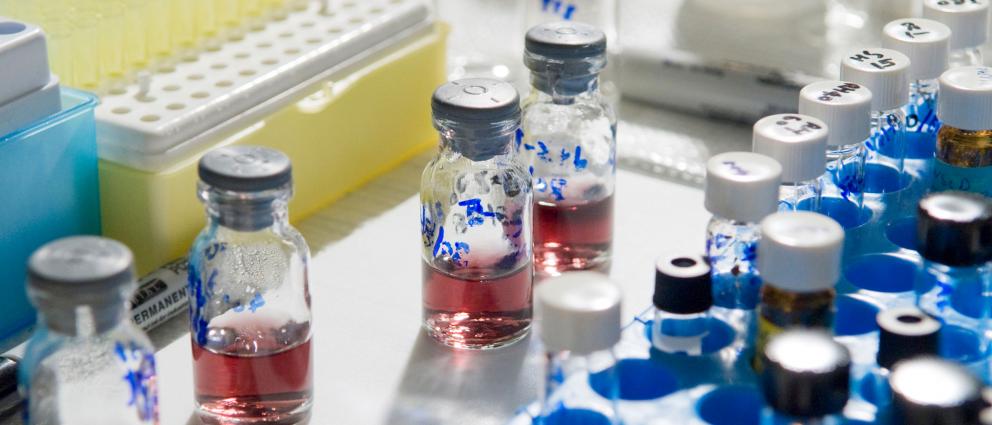Research Overview—
Professor Stobaugh's research activities have focused on the utilization of liquid phase separation techniques in the development of methodologies for the determination of drugs and peptides in a biological matrices. The development of these methodologies, while based on LC separations, typically involve operations, such as sample preparation (liquid-liquid extraction and solid-phase extraction) and sample pretreatment (precolumn derivatization). Several precolumn derivatization reagents have been developed, with a notable example being naphthalene-2.,3-dicarboxaldehyde, a fluorogenic primary amine specific reagent that is useful in the trace determination of peptides. More recently we have established the use of benzylamine, and various benzylamine analogs, for fluorogenic derivatization of 3-aminotyrosine (reduced form of 3-nitrotyrosine) residues present in peptides and proteins.
With regard to chromatography research, efforts are presently focused on extending the capabilities of commercial instrumentation by the fabrication and operation of a constant pressure chromatographic system termed an extreme-ultra-pressure-liquid chromatograph (XUPLC). The XUPLC unit serves as an add-on to a commercial chromatographic system, that is used for gradient formation and sample injection. The XUPLC unit is capable of routine operation at 30K psi, which allows for the use of extended length capillary columns (75 µm x 1 meter) packed with sub-2µm particles. These in-house packed capillary columns provide for substantially increased peak capacity, as compared to commercially available columns, and thus are exceedingly valuable for the analysis of difficult to resolve isobaric peptide mixtures, as encountered from photo-initiated degradation of proteins such as monoclonal antibodies.

